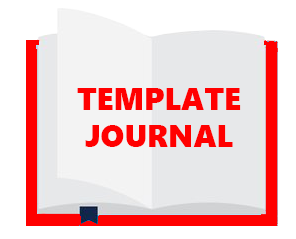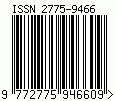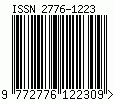THE EFFECT OF THE INDEPENDENT LEARNING POLICY ON STUDENT ACHIEVEMENT THROUGH TEACHER PERFORMANCE AS A MEDIATING VARIABLE
Abstract
This study examines the impact of the Independent Learning Policy on student achievement, focusing on the mediating role of teacher performance. Utilizing a quantitative research approach with Partial Least Squares Structural Equation Modeling (PLS-SEM) analysis through SmartPLS 4, the study analyzed data collected from a sample of 196 grade 9 students from three junior high schools in Situbondo Regency. The results indicate that the Independent Learning Policy significantly influences both teacher performance (path coefficient = 0.668, T-statistic = 19.174, p < 0.000) and student achievement (path coefficient = 0.414, T-statistic = 7.741, p < 0.000). Teacher performance was also found to have a substantial direct impact on student achievement (path coefficient = 0.558, T-statistic = 9.900, p < 0.000) and acted as a critical mediator, amplifying the policy's effect on student outcomes (indirect path coefficient = 0.373, T-statistic = 8.273, p < 0.000). The adjusted R² values further reinforce the model's robustness, with 44.3% of teacher performance variance and 78.9% of student achievement variance explained by the Independent Learning Policy and teacher performance. These findings emphasize the necessity of empowering teachers through professional development and resource allocation to maximize the effectiveness of educational policies. This study contributes to the theoretical understanding of policy implementation in education and offers practical recommendations for enhancing educational outcomes in junior high schools.
References
F. Rakhman, M. Munardji, H. Hamsinah, M. Ahsan, and L. Liswandi, “The Interpersonal Contribution of Capital Prophetic Leadership of Principals in Character Development,†Al-Hayat: Journal of Islamic Education, vol. 7, no. 2, Art. no. 2, Aug. 2023, doi: 10.35723/ajie.v7i2.428.
L. Koloszár, Ã. Wimmer, K. Takácsné György, and A. Mitev, “Tournament rituals and experiential competence development in higher education: A case of a unique conference series,†The International Journal of Management Education, vol. 22, no. 1, p. 100929, Mar. 2024, doi: 10.1016/j.ijme.2023.100929.
T. Triwiyanto, D. E. Kusumaningrum, A. Y. Sobri, and W. Maitreephun, “Accountability Management System of Superior Elementary School for Digital Transformation,†Journal of Education and Learning (EduLearn), vol. 18, no. 4, pp. 1514–1526, 2024.
Y. Cheng, P. Yang, J. Lee, J. Waters, and B. S. A. Yeoh, “Migration governance and higher education during a pandemic: policy (mis)alignments and international postgraduate students’ experiences in Singapore and the UK,†Journal of Ethnic and Migration Studies, Mar. 2024, Accessed: Jan. 22, 2025. [Online]. Available: https://www.tandfonline.com/doi/abs/10.1080/1369183X.2023.2279731
S. Surtini and T. Muhtar, “Teachers’ Pedagogic Competence in Strengthening Character Education of Students in Elementary Schools : Exploring Effective Strategies,â€Jurnal Paedagogy, vol. 11, no. 3, pp. 568–579, Jul. 2024, doi: 10.33394/jp.v11i3.11904.
P. D. H. A. M. S. Affandi, A. R. CPHCM SE, MM, and D. S. CPHCM S. Pd ,. MM ,. CHt, Manajemen SDM Strategik. Bintang Visitama, 2021.
A. Wahyudi, H. Fitria, and R. Rohana, “The Effect of Principal Leadership and Work Motivation on Elementary School Teacher Performance,†Edunesia : Jurnal Ilmiah Pendidikan, vol. 5, no. 2, Art. no. 2, Apr. 2024, doi: 10.51276/edu.v5i2.716.
I. Nurhidayah, C. W. Wolor, and A. W. Handaru, “The Influence of Organizational Culture and Work Disipline on Teachers Performance Through Work Motivation as An Intervening,†International Journal of Economics, Management and Accounting (IJEMA), vol. 1, no. 10, Art. no. 10, Mar. 2024, doi: 10.47353/ijema.v1i10.116.
I. Irwan, A. Arnadi, and A. Aslan, “Developing Critical Thinking Skills Of Primary School Students Through Independent Curriculum Learning,†Indonesian Journal of Education (INJOE), vol. 4, no. 3, Art. no. 3, Aug. 2024.
D. Indrawati, “Implementation of the Independent Learning Curriculum and its Implications for Improving Teacher Professionalism in Indonesia,†Proceedings Series of Educational Studies, no. 4, Art. no. 4, 2024.
H. Lin and Q. Chen, “Artificial intelligence (AI) -integrated educational applications and college students’ creativity and academic emotions: students and teachers’ perceptions and attitudes,†BMC Psychol, vol. 12, no. 1, p. 487, Sep. 2024, doi: 10.1186/s40359-024-01979-0.
A. Derakhshan and H. Yin, “Do positive emotions prompt students to be more active? Unraveling the role of hope, pride, and enjoyment in predicting Chinese and Iranian EFL students’ academic engagement,†Journal of Multilingual and Multicultural Development, vol. 0, no. 0, pp. 1–19, doi: 10.1080/01434632.2024.2329166.
M. Masri, R. Rusdinal, and N. Gistituati, “Implementasi kebijakan pendidikan kurikulum merdeka belajar,†JRTI (Jurnal Riset Tindakan Indonesia), vol. 8, no. 4, Art. no. 4, Dec. 2024, doi: 10.29210/30032794000.
I. Sukmaswati, B. Lian, and D. Wardiah, “The Influence of Principal’s Leadership and Teacher’s Performance on Student’ Achievement,†International Journal of Progressive Sciences and Technologies, vol. 20, no. 1, Art. no. 1, May 2020, doi: 10.52155/ijpsat.v20.1.1749.
H. Herdayati, E. Harapan, T. Tobari, and A. N. Samsonova, “The Effect Of Visionary Leadership And Lecturers’ Performance On Students’ Achievements,†vol. 2, pp. 89–98, 2020, doi: 10.33369/IJER.V2I1.10631.
A. Nurabadi, J. Irianto, I. Bafadal, J. Juharyanto, I. Gunawan, and M. A. Adha, “The Effect Of Instructional, Transformational And Spiritual Leadership On Elementary School Teachers’ Performance And Students’ Achievements,†Jurnal Cakrawala Pendidikan, vol. 40, no. 1, Art. no. 1, Feb. 2021, doi: 10.21831/cp.v40i1.35641.












